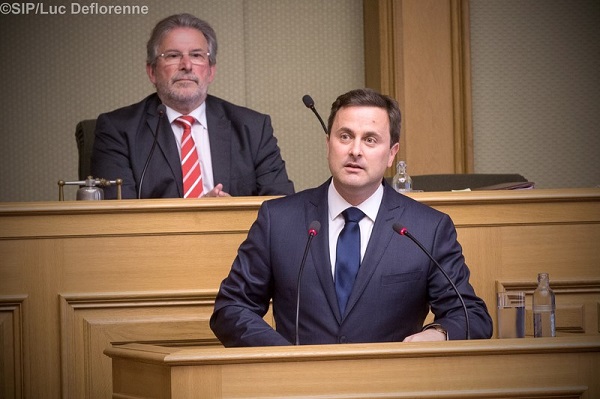
On Tuesday, Luxembourg's Prime Minister, Xavier Bettel, delivered the State of the Nation address to Luxembourg's parliament at the Chambre des Deputés.
He stressed the economic growth achieved in the past two years of the current government, with unemployment falling (currently 6.5%, the lowest in the EU). He emphasised that more needed to be done for small businesses and highlighted the "1-1-1 company" initiative that would reduce bureaucracy for setting up a new form of company in Luxembourg (the draft bill is ready to be presented to parliament), as well as the promotion of entrepreneurship and specifically new business incubators, including one at the former slaughterhouse in Hollerich (which had once been earmarked by Den Atelier for a new concert venue). A new House of Entrepreneurship and a new House of FinTech will both be created.
He urged greater transparency with the aim of repairing Luxembourg's reputation from the LuxLeaks affair (ironically, the trial of three people in connection with LuxLeaks started on the same day in Luxembourg courts).
Other issues addressed including adding more cycle paths, including along the tram lines, and bus routes, with P&R facilities to more than double by 2020. He also addressed a housing initiative to accommodate more than 3,500 people. Cheques Repas will have their value increased (understood to be from €8.40 to €10.40). The government will also address additional paid leave for parents caring for sick children as one aspect related to the reform of family benefits.
He also addressed the challenges asylum seekers have in integrating into Luxembourg and vowed to help them assimilate better.
On Wednesday, Luxembourg's Finance Minister, Pierre Gramegna, addressed the Chambre des Deputés on the state of the nation's finances and confirmed that they are €1.3 billion better than when the government took office over two years ago, with a €400 million surplus expected this year. Economic growth is continuing, with 2.9% forecast for 2016, with estimates of in excess of 4.5% for the next two years. Government debt is currently 22% of GDP, well within EU guidelines.
File photo by Luc Deflorenne








